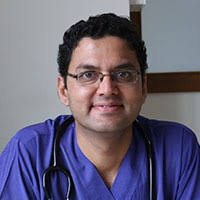+919423419711

This is your website preview.
Currently it only shows your basic business info. Start adding relevant business details such as description, images and products or services to gain your customers attention by using Boost 360 android app / iOS App / web portal.
CHOLESTEROL AND CARDIAC DISEASE Cholesterol is th...
CHOLESTEROL AND CARDIAC DISEASE Cholesterol is the most prominent compound member of the steroid family of lipids. It is a waxy, fat-like substance found primarily in the cells of animals and humans. Cholesterol levels are measured in milligrams (mg) of cholesterol per deciliter (DL) of blood. The average level of cholesterol should range from 200-300 mg/DL. Types of cholesterol- 1. HDL – High-Density Lipoprotein- It is considered good cholesterol, as a high level of HDL protects against heart attack and stroke. It brings back cholesterol to the liver. The level of HDL cholesterol can range from 40 or more.2. LDL – Low-Density Lipoprotein- It is considered bad cholesterol, as it is related to an increased risk of coronary heart disease, stroke and peripheral artery disease. Too much LDL cholesterol circulating in the blood can slowly form plaque, which blocks blood flow and forms a clot. The formation of a clot or lumps in the blood vessels near the heart can cause a heart attack. The level of LDL cholesterol should be less than 100. The liver and intestines play a significant role in controlling the LDL levels in our blood cells. Risk factors/ Factors influencing cholesterol levels are age, weight, gender, genetics, diseases and lifestyle. High cholesterol level is mainly caused by diet, but heredity does play a role in increasing cholesterol level. For example, lack of regular exercise can produce higher HDL cholesterol levels, which results in heart disease. Measuring cholesterol concentration is of clinical and analytical importance as high plasma cholesterol levels are associated with cardiac vascular diseases. When there is too much cholesterol in the blood, it builds up in the walls of your arteries, causing a process called atherosclerosis, a form of heart disease. The arteries become narrowed and blood flow to the heart muscle is slowed down or blocked. The blood carries oxygen to the heart, and if not enough blood and oxygen reach your heart, you may suffer chest pain. If the blood supply to a portion of the heart is completely cut off by a blockage, the result is a heart attack. Prevention: We can control high cholesterol level by- Consuming healthy whole grains, fat-free and low-fat dairy products, egg whites, fresh fruits and vegetables, etc. Avoiding fatty products and doing regular exercise for 20-30 minutes. Avoiding alcohol use and quitting smoking. A Cardiologist can prescribe cholesterol lowering drugs and give you proper dietary and lifestyle modification advice. The irreversible damage caused by hypercholesterolemia can be treated.

